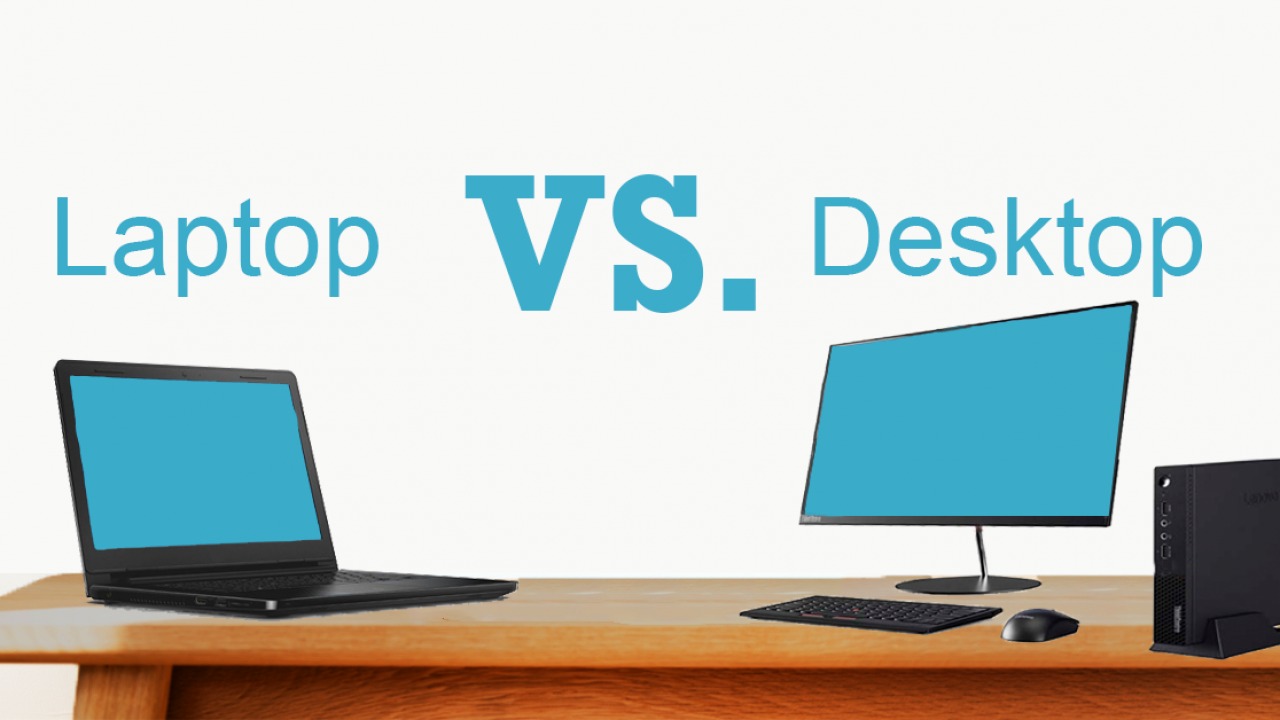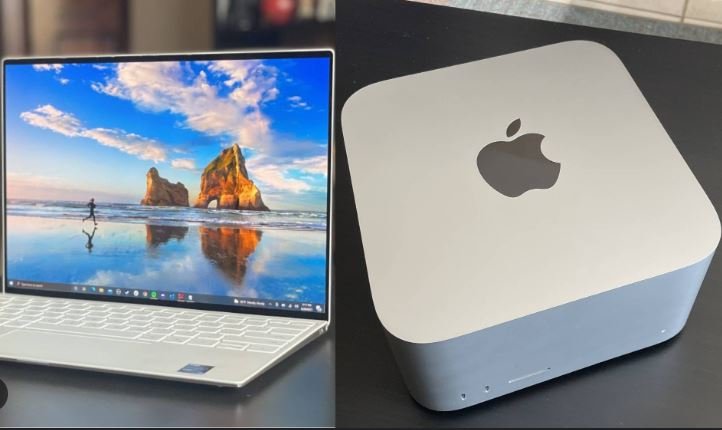When deciding between a desktop and a laptop, it’s important to consider your specific needs and preferences. Each type of computer has its own advantages and disadvantages. Here’s a comparison to help you determine which one suits your needs best.

Portability
Laptop:
- Pros: Laptops are designed for portability, allowing you to work or play from anywhere. They are ideal for those who need to move between locations, whether for work or leisure.
- Cons: While laptops offer portability, they often come with trade-offs in terms of performance and upgradeability compared to desktops.
Desktop:
- Pros: Desktops are stationary and designed for use in a fixed location. This makes them less portable but often more powerful and customizable.
- Cons: Lack of portability can be a drawback if you need to work or access your computer from different places.
Performance
Laptop:
- Pros: Modern laptops offer impressive performance with high-end processors, GPUs, and ample RAM. Many are capable of handling demanding tasks like video editing and gaming.
- Cons: Laptops typically have less powerful components compared to desktops due to space and cooling constraints. Performance can be limited by battery life and thermal management.
Desktop:
- Pros: Desktops generally offer superior performance due to their larger size, which accommodates more powerful components and better cooling solutions. They can handle intensive tasks and multitasking more efficiently.
- Cons: The performance of a desktop depends on the specifications of its individual components, which may be more expensive to upgrade or replace.
Customization and Upgrades
Laptop:
- Pros: Laptops offer limited customization and upgrade options. Some models allow for upgrading RAM or storage, but overall, they are less flexible.
- Cons: The inability to upgrade components like the GPU or CPU means you may need to replace the entire laptop sooner if your needs change.
Desktop:
- Pros: Desktops are highly customizable and upgradeable. You can easily replace or upgrade components like the GPU, CPU, RAM, and storage, extending the lifespan of your system.
- Cons: Upgrading a desktop may involve additional costs and technical knowledge, but it offers greater flexibility.
Space and Setup
Laptop:
- Pros: Laptops require minimal space and can be used on virtually any surface. They come with an integrated monitor, keyboard, and trackpad, reducing the need for additional peripherals.
- Cons: Small screen size and integrated keyboard may be less comfortable for long periods of use compared to a desktop setup with separate components.
Desktop:
- Pros: Desktops require a dedicated workspace and typically include separate monitors, keyboards, and mice. This can lead to a more comfortable and ergonomic setup.
- Cons: Desktops take up more space and require additional peripherals, which can contribute to clutter if not managed properly.
Battery Life
Laptop:
- Pros: Laptops come with built-in batteries, allowing you to use them without being tethered to a power outlet. Battery life varies by model and usage.
- Cons: Battery life can be limited, especially during intensive tasks. Battery degradation over time can also affect performance.
Desktop:
- Pros: Desktops are powered directly through a wall outlet, so you don’t need to worry about battery life. They can run continuously as long as they are plugged in.
- Cons: Lack of battery power means desktops are not suitable for use without a reliable power source.
Cost
Laptop:
- Pros: Laptops are available in a wide range of prices, from budget models to high-end systems. They offer convenience and portability, often justifying the cost.
- Cons: High-performance laptops can be expensive, and the cost can increase with additional features and upgrades.
Desktop:
- Pros: Desktops generally offer better performance for the price compared to laptops. They can be more cost-effective for high-end components and customization.
- Cons: Initial costs can be higher if you need to purchase separate peripherals, but long-term value can be greater due to upgradeability.
Conclusion
Choosing between a desktop and a laptop depends on your specific needs. If portability and space-saving are crucial, a laptop is likely the better choice. For those who prioritize performance, customization, and a stationary setup, a desktop provides greater power and flexibility. Consider how you will use your computer and weigh the pros and cons to make the best decision for your lifestyle.











